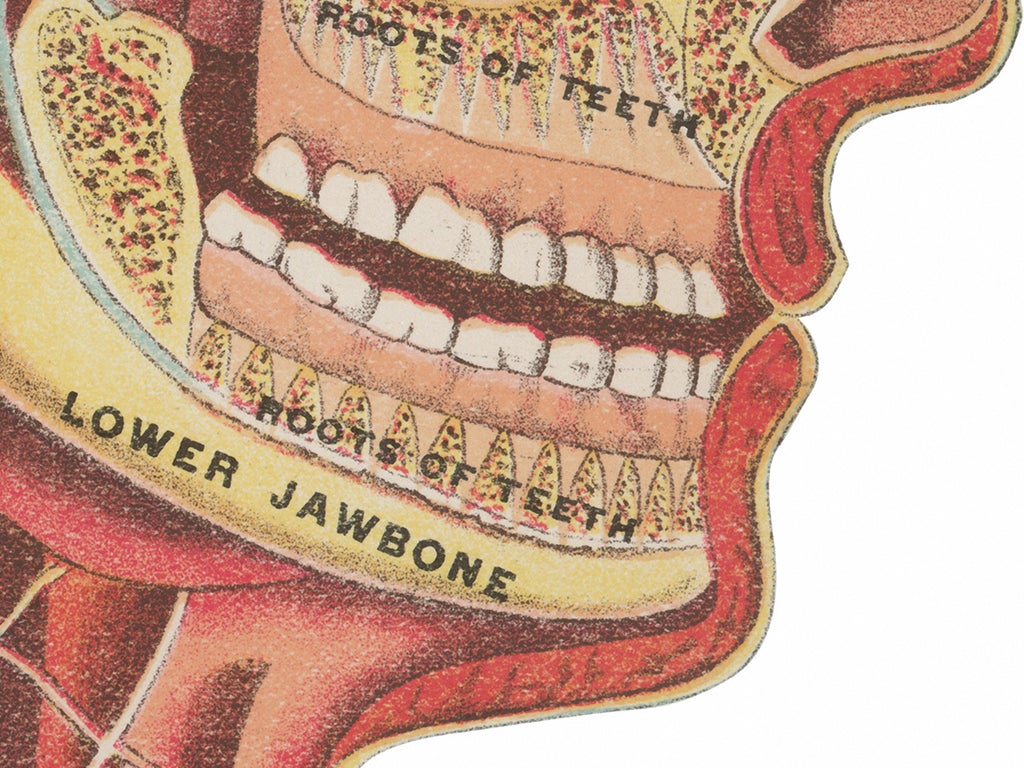10 ways we damage our teeth – without realising
Including using your teeth as a bottle opener and brushing after breakfast

Your support helps us to tell the story
From reproductive rights to climate change to Big Tech, The Independent is on the ground when the story is developing. Whether it's investigating the financials of Elon Musk's pro-Trump PAC or producing our latest documentary, 'The A Word', which shines a light on the American women fighting for reproductive rights, we know how important it is to parse out the facts from the messaging.
At such a critical moment in US history, we need reporters on the ground. Your donation allows us to keep sending journalists to speak to both sides of the story.
The Independent is trusted by Americans across the entire political spectrum. And unlike many other quality news outlets, we choose not to lock Americans out of our reporting and analysis with paywalls. We believe quality journalism should be available to everyone, paid for by those who can afford it.
Your support makes all the difference.We Brits are notoriously known for our ‘bad’ teeth, however I prefer to think that British people have a more natural, quirky and individual smile. Thanks to wider fashion trends and some A-list supporters, more and more of us are embracing unique smiles and realising that the over-white, blinding Hollywood smile, is not the best look.
Although most of us know to brush twice a day, there are many ways we can be damaging our teeth without realising.
Brushing your teeth after breakfast
You should brush your teeth as soon you wake up to brush away the bacteria that has formed in your mouth overnight. Then after you have eaten breakfast, rinse with a fluoride mouthwash.
Rinsing with water after brushing
Do not rinse after you have brushed your teeth as this washes away the fluoride in the toothpaste which is good for your teeth and helps prevent tooth decay. Just spit out the excess toothpaste.
Brushing your teeth straight after eating
You should wait for 30 – 40 minutes to allow saliva to naturally neutralise the low PH in the mouth caused by food and drinks before brushing. If you brush straight away the acid in the mouth gets brushed into the teeth and causes erosion and loss of tooth enamel, making the teeth sensitive and weaker over time.
Using a hard bristled toothbrush
You should never use a hard bristled toothbrush; always use a medium-soft bristled toothbrush because it is far kinder to your teeth. Using a hard bristled toothbrush will damage the gums, root surface and protective tooth enamel.
Snacking
If you are constantly grazing at your desk be aware that snacking in between meals is bad for your teeth as it increases the contact that food has with your teeth so can cause plaque to develop which leads to cavities. If you need to have a snack then try to stick to crudités as the raw vegetables help to clean your teeth naturally, or some unsalted nuts as they are full of calcium and vitamin D which help to keep your teeth and gums healthy.
Using your teeth as a bottle opener
It is highly likely that at when you are socialising at a party at the weekend, someone will be there who decides that opening a bottle with their teeth rather than a bottle opener is a great party trick. Opening a bottle, packet of crisps or anything else with your teeth can be extremely damaging as wears away your teeth and you are far more likely to chip a tooth. If this does happen, keep the missing tooth in milk until you can seek emergency dental work.
Drinking dark drinks
Darker coloured drinks such as rum and coke are the worst offenders when it comes to damage and erosion to the teeth as they have the lowest pH so are more acidic. You will be delighted to know that lighter coloured drinks such as champagne and Prosecco are better options for your teeth as they have a slightly higher pH value so will cause less damage. Cheers!
Guzzling soft drinks
It is not just alcoholic drinks that can be harmful to your teeth, be mindful of the soft drinks that you are consuming too. Opting for a fruit juice over a fizzy drink will be slightly kinder to your teeth. If you are drinking fizzy drinks, drink them through a straw to minimize the sugar contact with your teeth which can lead to dental issues. Also, chew sugar-free chewing gum after drinks to help neutralize the acid in your mouth that damages your teeth.
Flossing after brushing
Floss before you brush to loosen any food debris, flossing prior to brushing will act like a pre-wash for the teeth. Then brush your teeth and spit the toothpaste out but don’t rinse with water, this will keep fluoride on the teeth and help prevent the build up of plaque which can lead to cavities.
Flossing backwards and forwards
Flossing is essential to your daily oral hygiene routine, however there is a particular technique to flossing that you must use to keep your teeth and gums healthy. Pass the floss gently through the contact point between the teeth and then rub the floss up and down the sides of each tooth and each side of the gingival papillae (pink triangle of the gum between the teeth), pull the floss out gently from the space under the gingival papilla or back through the contact points. Never pull the floss backwards and forwards on the gum as this will cause damage.
Dr Sameer Patel, Clinical Director at Elleven www.ellevendental.com
Join our commenting forum
Join thought-provoking conversations, follow other Independent readers and see their replies
Comments